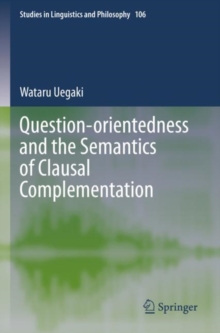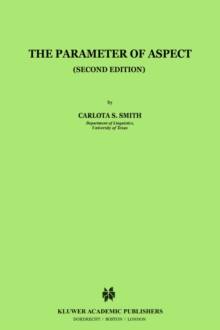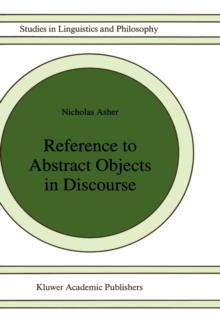
Question-orientedness and the Semantics of Clausal Complementation Hardback
by Wataru Uegaki
Part of the Studies in Linguistics and Philosophy series
Hardback
Description
This volume explores the compositional semantics of clausal complementation, and proposes a theory in which clause-embedding predicates are uniformly “question-oriented”, i.e., they take a set of propositions as their semantic argument.
This theory opens up new horizons for the study of embedded questions and clausal complementation, and presents a successful case study on how lexical semantics interacts with syntax and compositional semantics.
It offers new perspectives on issues in epistemology and the philosophy of language, such as the relationship between know-wh and know-that and the nature of attitudinal objects in general. Cross-linguistically, attitude predicates such as know, tell and surprise, can embed both declarative and interrogative clauses.
Since these clauses are taken to represent different semantic objects, like propositions and questions, the embedding behavior of these predicates poses puzzles for the compositional semantics of clausal complementation.
In addition, the fact that some verbs “select for” a certain complement type poses further challenges for compositional semantics.
This volume addresses these issues based on a uniformly question-oriented analysis of attitude predicates, and proposes to derive their variable behaviors from their lexical semantics. The book is essential reading for linguists working on the syntax and semantics of clausal complementation, as well as those interested in the role of lexical semantics in compositional semantics.
It will also be valuable for philosophers who are interested in applying linguistic tools to address philosophical problems.
Information
-
Available to Order - This title is available to order, with delivery expected within 2 weeks
- Format:Hardback
- Pages:207 pages, 1 Illustrations, black and white; XXII, 207 p. 1 illus.
- Publisher:Springer International Publishing AG
- Publication Date:09/01/2023
- Category:
- ISBN:9783031159398
Other Formats
- Paperback / softback from £104.49
Information
-
Available to Order - This title is available to order, with delivery expected within 2 weeks
- Format:Hardback
- Pages:207 pages, 1 Illustrations, black and white; XXII, 207 p. 1 illus.
- Publisher:Springer International Publishing AG
- Publication Date:09/01/2023
- Category:
- ISBN:9783031159398









